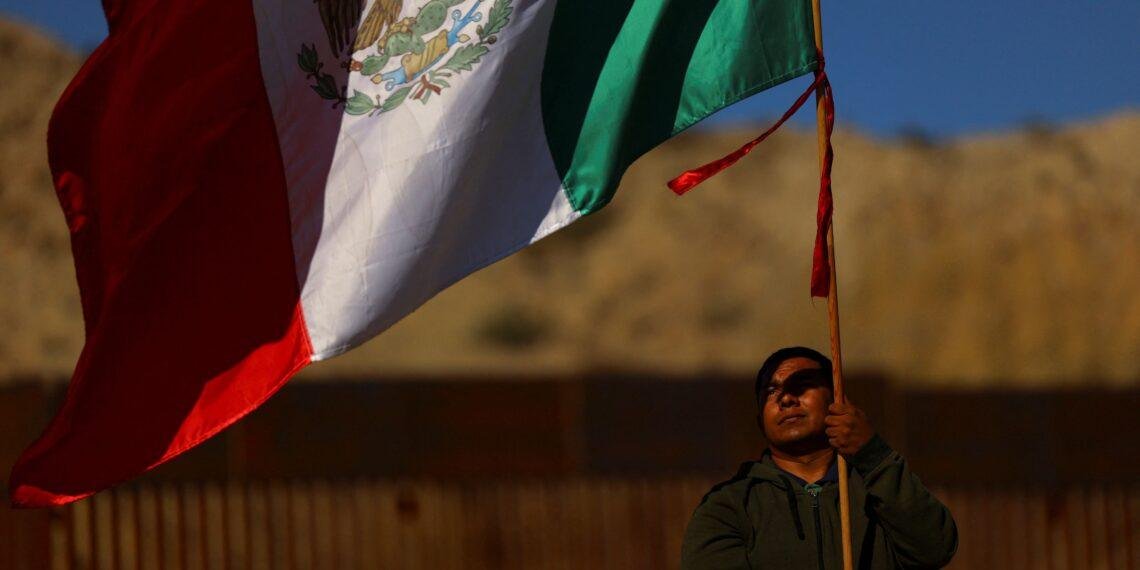Mexico has taken an unprecedented step in global immigration dynamics, beginning the deportation of Americans living illegally within its borders. This bold move, which emerged in late January 2025, is widely seen as a direct countermeasure to the United States’ intensified deportation efforts under President Donald Trump’s administration. The unfolding scenario highlights rising tensions between the two nations and poses critical questions about the future of U.S.-Mexico relations.
For years, the United States has been ramping up deportations, with Trump’s immigration policies targeting undocumented migrants in what he describes as the “largest deportation operation in American history.” Mexico, which has borne the brunt of these efforts as home to millions of undocumented immigrants in the U.S., is now taking a stand. By deporting undocumented Americans, including individuals from Puerto Rico, the Mexican government is sending a clear message that it will not tolerate one-sided enforcement policies.
Mexico’s bold actions reflect deep frustrations with U.S. immigration measures, particularly those driven by state laws like Texas’ Senate Bill 4 (S.B.4), which empowers local law enforcement to crack down on undocumented immigrants. Mexican President Claudia Sheinbaum has openly criticized such policies, viewing them as hostile and in violation of international norms. Her administration’s decision to deport Americans without legal status is seen as both a symbolic and practical response to the Trump administration’s hard-line approach.
Reports indicate that while the number of Americans deported from Mexico remains relatively low, it is growing. In the first quarter of 2024 alone, Mexico deported 96 American citizens, signaling a shift in its immigration enforcement strategy. Although this figure pales in comparison to the mass deportations of Mexicans from the U.S., it underscores a growing willingness by Mexico to push back against perceived injustices.
This unprecedented development has far-reaching implications for politics, economics, and human rights in both nations.
Politically, the deportation of Americans intensifies the already fraught relationship between the U.S. and Mexico. Immigration has long been a flashpoint in bilateral relations, and this tit-for-tat approach risks deepening mistrust and complicating future cooperation. President Trump’s administration is unlikely to view Mexico’s actions favorably, potentially leading to retaliatory measures or further escalation.
Economically, the two nations are deeply intertwined, with Mexico serving as a vital trade partner for the U.S. An escalation in tensions could disrupt trade agreements and even spark tariff disputes, impacting industries on both sides of the border.
From a societal perspective, Mexico’s actions could spark heated debates in the United States. Some Americans may view the deportations as justified push back, while others might see them as a challenge to U.S. sovereignty. Meanwhile, Mexican citizens appear largely supportive of their government’s decision, interpreting it as a move to defend national pride and stand up to perceived overreach by the U.S.
The deportation of Americans raises pressing questions about legal rights and due process. Many of those deported may have lived in Mexico for years, building lives and families. Dual nationals and long-term residents face unique challenges, and ensuring their rights are respected will be key to avoiding further backlash.
Read also: Trump okays policy, allowing immigration arrests at Schools, Churches, Hospitals
The humanitarian dimension of this issue cannot be overlooked. Both countries face scrutiny for how deportees are treated, with human rights organizations calling for fair processes and humane treatment on both sides of the border.
The deportation of Americans by Mexico underscores the urgent need for both nations to revisit their immigration policies. The way forward will require measured diplomacy, public dialogue, and a commitment to finding solutions that prioritize fairness and humanity.
Diplomatic engagement could help de-escalate tensions, as both nations work toward addressing the root causes of illegal immigration. Policy revisions may also be necessary, focusing on more compassionate approaches to long-term residents and dual nationals.
Above all, this unfolding crisis highlights the interconnectedness of the U.S. and Mexico—economically, socially, and politically. The deportation of Americans is not just a legal issue but a symbol of broader tensions in a region where cultures and economies are deeply linked. Whether this sparks a path toward resolution or further division will depend on the political will and leadership of both nations.
For now, Mexico’s message is clear: it will not stand idly by while the U.S. enforces hard-line immigration policies. The world is watching, and the outcome of this standoff will likely shape the future of immigration policy and diplomacy in the Americas.






